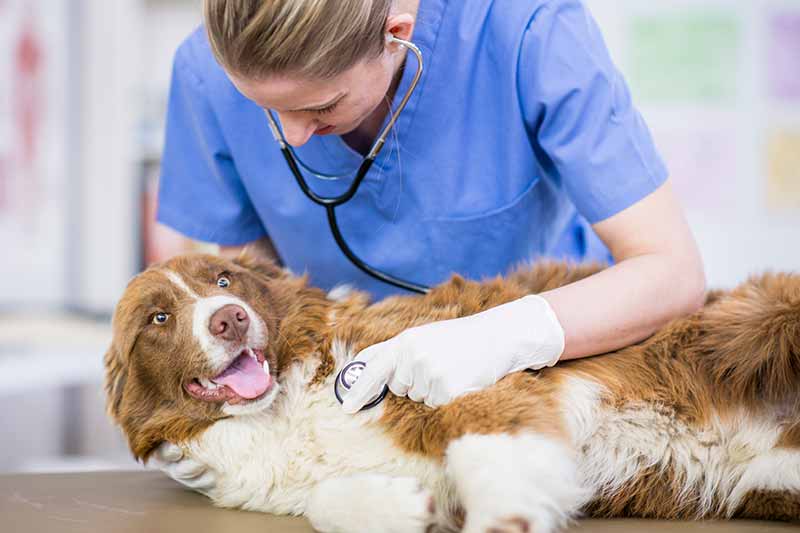Shield Your Pet's Future with Prompt Pet Vaccinations from an Expert Vet
Shield Your Pet's Future with Prompt Pet Vaccinations from an Expert Vet
Blog Article
Vaccination Guidelines From Your Relied On Veterinarian
Vaccination standards offered by your trusted veterinarian play an important duty in protecting your pet's health and wellness and health. Core vaccines are essential for all pets, while non-core injections can be customized to environmental exposures and certain way of livings. Recognizing the subtleties of inoculation timetables, which begin as early as six to 8 weeks, is necessary for ideal defense. In addition, addressing usual misconceptions bordering vaccinations can even more improve pet owners' confidence in these safety nets. As we explore these important aspects, it ends up being increasingly clear why normal assessments with your veterinarian are vital for educated decision-making.

Value of Inoculations
Vaccinations play a pivotal duty in securing family pets against a variety of preventable diseases. By promoting the body immune system to recognize and deal with details virus, vaccinations considerably decrease the occurrence of transmittable diseases that can affect an animal's health and wellness and longevity. Not just do inoculations secure individual pets, yet they likewise add to herd resistance, consequently lowering the overall prevalence of diseases in the pet populace.
Prompt vaccinations help to mitigate the spread of illness such as rabies, parvovirus, and distemper, which can have extreme effects for both pets and people. Inoculations are often a demand for boarding centers, grooming services, and pet parks, making them important for those who desire to socialize their animals.

Core Vaccinations for Family Pets
While the particular inoculation needs of animals can differ based upon private elements, core vaccines are generally suggested to protect versus one of the most usual and significant illness (Veterinarian Enterprise). Core vaccines are those considered essential for all family pets, despite their way of life or geographic place, as they protect versus possibly fatal and extremely transmittable health problems
For canines, the core vaccines include those for canine distemper, parvovirus, adenovirus (hepatitis), and rabies. Adenovirus can result in liver condition, while rabies is a zoonotic condition that postures a threat to both animals and humans.
In felines, core injections include feline panleukopenia, feline calicivirus, feline herpesvirus (rhinotracheitis), and rabies. Feline panleukopenia is a highly infectious viral condition that influences the body immune system and intestinal tracts. Calicivirus and herpesvirus are significant contributors to top respiratory infections in cats, while rabies continues to be an important issue for public health.
Seek advice from your veterinarian to guarantee your family pets obtain their core inoculations on time.
Non-Core Vaccines Explained
Non-core injections are customized to attend to certain threats connected with a pet dog's way of living, environment, and direct exposure to specific diseases. Unlike core vaccinations, which are widely advised for all animals, non-core vaccines are thought about based upon individual conditions. These vaccinations are especially vital for pet dogs that may encounter one-of-a-kind microorganisms as a result of their geographical location, travel habits, or activities.
Examples of non-core injections consist of those for Bordetella bronchiseptica, which is linked to kennel coughing, and Lyme disease, caused by ticks. Pet dogs that find out here now regularly interact with various other pets, such as those in boarding facilities, canine parks, or grooming atmospheres, might profit from Bordetella vaccination. Likewise, if you reside in a location where Lyme disease prevails, vaccinating against this disease can be a prudent option for outdoor-loving dogs.
Various other non-core injections might include those for leptospirosis, canine flu, and feline leukemia, depending upon the particular risk elements existing. It is necessary to have a comprehensive discussion with your veterinarian concerning your pet dog's way of living and the potential need for these vaccines, guaranteeing a tailored vaccination method that finest protects your hairy buddy.
Vaccination Arrange Summary

As pet dogs mature, it is very important to adhere to the suggested booster vaccinations. Vet Enterprise. For adult animals, core vaccines are normally given each to 3 years, relying on the details vaccination and neighborhood laws. Non-core vaccines might be recommended based on way of life elements and local condition frequency, demanding a tailored strategy
Normal veterinary exams are critical for updating inoculation timetables. Your veterinarian can offer support on the most appropriate booster shots for your pet, factoring in age, health and wellness condition, and ecological risks. By staying aggressive and notified, pet dog proprietors can ensure their fuzzy buddies receive efficient and prompt inoculations, therefore protecting their health and wellness throughout their lives.
Typical Myths Concerning Vaccinations
Misunderstandings concerning pet dog vaccinations can cause complication and reluctance among pet owners concerning the immunization procedure. One common misconception is that vaccines are unnecessary for interior pet dogs. While it holds true that interior pets deal with lower threats, they are not entirely unsusceptible to illness, as microorganisms can be presented via different ways, consisting of human apparel and other animals.
Another mistaken explanation belief is that injections can trigger the conditions they aim to avoid. Actually, a lot of injections consist of suspended or undermined microorganisms, which can not create disease helpful site in healthy and balanced animals. Some pet dog owners also believe that their family pets should not be immunized if they are currently healthy and balanced; nonetheless, vaccinations are a proactive measure that helps protect against the start of illness.
Additionally, lots of pet owners are afraid that vaccines will result in long-lasting health issues. While adverse effects can happen, they are typically moderate and short-lived. The advantages of vaccination-- protecting pet dogs from potentially dangerous illness-- far exceed the threats. Recognizing these common misconceptions is crucial for liable pet dog ownership and guaranteeing the health and wellness of your fuzzy companions. Constantly consult your vet for exact info customized to your pet's specific requirements.
Final Thought
In summary, adherence to inoculation guidelines is essential for ensuring the health and wellness and durability of pets. Resolving typical misconceptions surrounding inoculations further enhances the significance of informed decision-making in family pet care.
Not just do vaccinations protect specific animals, however they additionally add to herd immunity, therefore lowering the general occurrence of conditions in the pet population.
False impressions regarding family pet vaccinations can lead to complication and reluctance amongst animal proprietors pertaining to the immunization procedure. While it's true that indoor animals encounter lower risks, they are not entirely immune to illness, as microorganisms can be presented via numerous ways, consisting of human clothing and various other family pets.
Some animal proprietors likewise think that their pets should not be vaccinated if they are already healthy and balanced; however, vaccinations are a positive action that assists avoid the beginning of ailment.
The benefits of vaccination-- securing pets from possibly serious conditions-- much outweigh the dangers.
Report this page